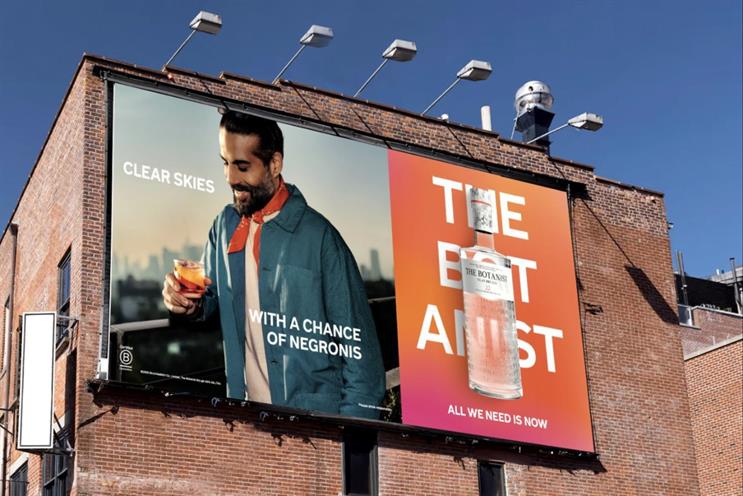
The Botanist has unveiled a revamped brand identity encouraging gin drinkers to enjoy the “now."
Created by The Elephant Room, which won the brief following a five-way pitch at the beginning of 2024, “All we need is now” features a fresh visual brand identity, brand platform and through-the-line global campaign.
According to The Botanist, the redesign was inspired by the “wild beauty of Islay”, the Scottish isle and home to the gin brand.
The colour palette was designed to capture the “shifting energy of nature and the changing seasonal light of Islay, inspired by a combination of Hebridean sunsets, selected botanicals and Islay’s biodiversity."

The custom font, called The Botanist Infra, was designed to showcase the brand’s “premium quality, stature and heritage."
The creative assets capture a series of moments where The Botanist can be enjoyed, from relaxed at-home drinking to social occasions. It encourages people to look beyond planned events and enjoy the moment they’re in.
Out of home features lines like “Clear skies, with a chance of Negronis” and “Now sounds good” with photography of people enjoying the beverage.
Gareth Brown, global marketing director at The Botanist gin, said: “This repositioning marks an exciting new chapter for The Botanist as we look to capture the attention of a global audience.
“We're not just refreshing our look; we're evolving to meet the desires of modern luxury consumers who seek authentic moments and are intentional how they live. By tapping into the 'All we need is now' mindset, we aim to elevate The Botanist experience and solidify our position as a leading super-premium gin worldwide."

“All we need is now” was shot by Charlie McKay and Rob Lawson and the campaign was created by Nina Taylor and Khutina Griffiths.
Dan Saxby, managing director of The Elephant Room, added: "This rebranding is more than a visual refresh; it's a fundamental shift in perspective. We're tapping into a powerful desire among modern luxury audiences for intentional living and genuine connection, a move away from overconsumption towards a sense of 'enoughness'."



.jpg&h=334&w=500&q=100&v=20250320&c=1)





+(900+x+600+px)+(3).png&h=334&w=500&q=100&v=20250320&c=1)
.jpg&h=334&w=500&q=100&v=20250320&c=1)






.jpg&h=268&w=401&q=100&v=20250320&c=1)
.jpg&h=268&w=401&q=100&v=20250320&c=1)